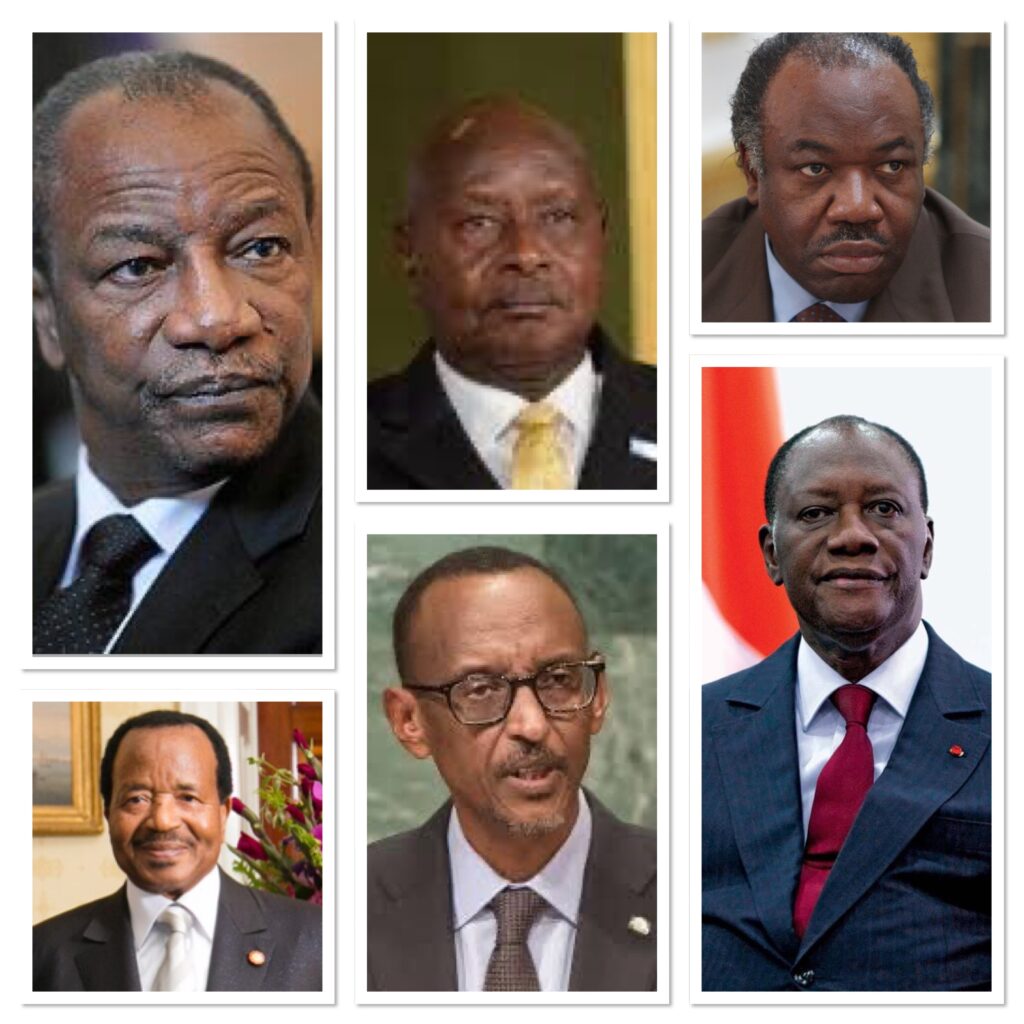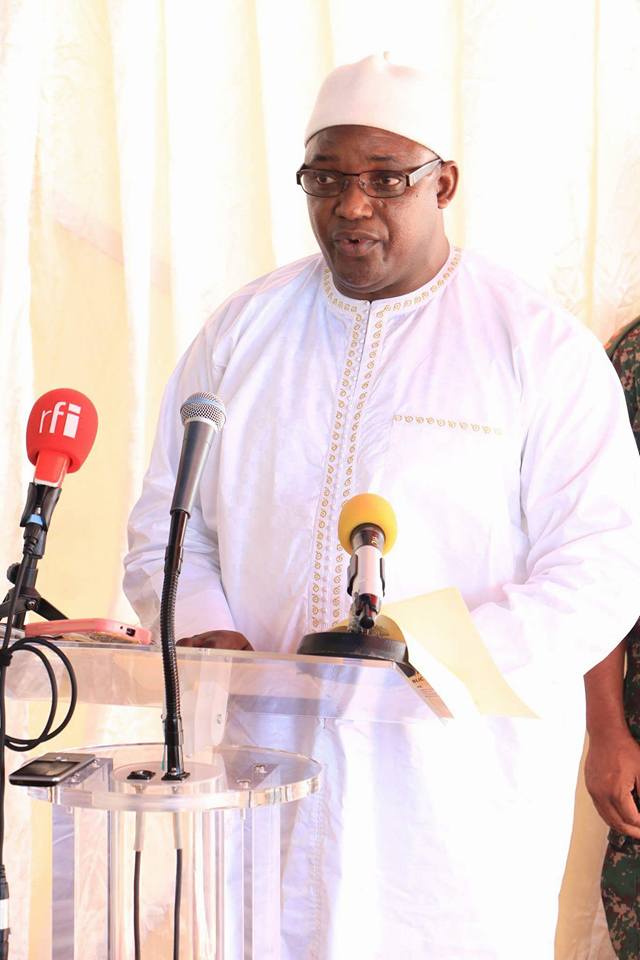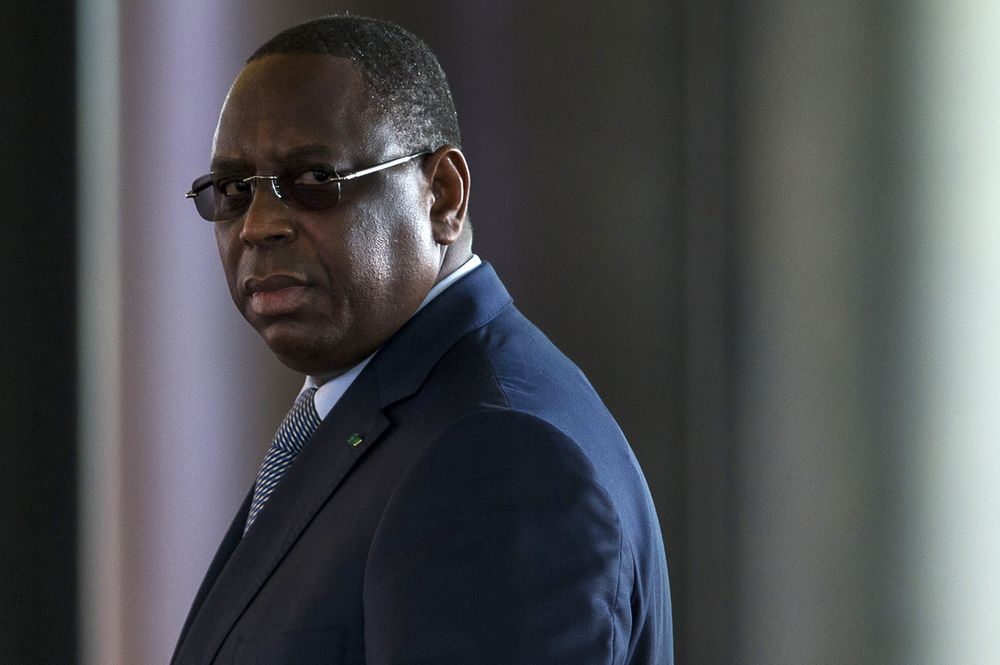
The two-term limit provision is an essential feature in the Constitution of the most decadent and depraved democracy when a nation-state becomes morally and intellectually corrupt.
The United States of America’s Constitution Section 1 of the 22nd amendment to the US Constitution provides that: No person shall be elected to the office of the President more than twice, and no person who has held the office of President, or acted as President, for more than two years of a term to which some other person was elected President shall be elected to the office of the President more than once.
The actions signal that Africa is a long way from burying the ugly era of Sit-Tight syndrome and life tenure elongation in African politics. The period, which followed immediately after independence and lasted until the end of the 1990s, had a debilitating effect on stability, democracy, and socio-economic development on the continent.
Besides, the African Union needs to revive efforts to impose a continent-wide two-term limit on presidents on the continent. One is to ensure that, when new constitutions are adopted, they are specific that terms already served in office still count.
The Gambia’s rejected 2020 draft constitution sets a model with a clause that establishes two-term limits and specifically counts terms served before its adoption. Africa has more than its fair share of presidents who have stayed longer than they should have. Seven of the ten longest-serving presidents in the world are in Africa.
The election comes at a delicate moment in West Africa, where concerns are growing over a reversal of democratic gains. In August, Mali’s Government was overthrown by the army. In Ivory Coast, months of protests against President Alassane Ouattara (78) are elongating a third term bid on Oct. 31 for a third term that has turned violent.
President Alpha Conde of Guinea Conakry’s ruling party validated Conde (82) for a third term, described the constitutional reform of elongating his term, allowed him to run again as fair and democratic. He says he needs more time to finish significant mining and infrastructure projects in the West African country.
In 2019, Alpha Conde announced that it would pursue the adoption of a new constitution. It deliberately aimed at bypassing a provision prohibiting amendments to the two-term limit. The opposition criticized the move as defying the spirit of the 2010 constitution against absolute terms.
Protests have been held in the capital, Conakry, and other parts of the country since October 2019. The Constitution retains the two-term limit but is silent on time already served before it came into force, enabling Condé to seek two more terms. He could potentially rule until 2032.

Gambians have had more than our fair share of political leaders with megalomaniac and monopolistic political tendencies who continued to rule and refused to give way even though it is evident that the time for change had come.
Presidential term limits were/are intended to, among other things, protect democracy from becoming a de facto dictatorship where a leader would effectively have a monopoly of power with the likelihood of almost declaring himself ‘president for life’ as Yahya Jammeh and his successor Adama Barrow desired to cling to power in the example of the reality that obtained in Uganda and Equatorial Guinea. This can suffocate new talent and stifle democracy.
A proposed provision in the draft African Charter on Democracy, Elections, and Governance, aimed to do so in 2007, encourage African governments to adopt and adhere to Presidential Term Limits to its constitutions but was scrapped after Uganda led the opposition to its adoption. Ugandan President Yoweri Museveni had already removed the two-term limit from the country’s Constitution in 2005.
Similarly, the Economic Community of West African States (Ecowas) to establish a Presidential Two-Term Limit was shelved in 2015 due to opposition from The Gambia, then under dictator Yahya Jammeh, and Togo, whose constitutions contained no term limits provisions.
Presidential term limit provides a way to deliver power into the people’s hands and strengthen democracy. It changes national goals from the leaders’ personal power to public service and the country’s good.
Fossilised leadership, which entrenches itself through manipulation and control of party politics, is an anathema to democracy and growth principles.
Moreover, democracy is something that goes beyond merely being an inheritance for citizens of our country. Only six countries with presidential systems on the continent do not have Presidential Term Limits. They are Eritrea, Somalia, Cameroon, South Sudan, Djibouti, and The Gambia.
Most of the countries that had removed term limits have since reinstated them. Examples include Uganda, whose parliament reinstated presidential term limits in 2017.
Nevertheless, President Museveni, who has been in power for 35 years, can still run again. Togo did so last year, although the incumbent, President Faure Gnassingbe, who has been in power since 2005, is not precluded from contesting future elections. He could potentially be in power until 2030. Without a concerted effort to establish a continental two-term policy, Africa may be bound to live with the specter of presidents for life.
There have been some notable examples of democratic leadership changes in Africa due to Presidential Term- Limit legislation. Most recent examples include the Democratic Republic of Congo (2019), Sierra Leone (2018), and Liberia (2017). In all three countries, the elections were characterised by intense competition and won by the opposition.
However, many other presidents have tampered with their countries’ constitutions to extend their stay in power. The list includes Togo (2002), Gabon (2003), and Ivory Coast, and Guinea Conakry( 2020. The latest abuses should show that there is still a way to go to stamp out this practice. Several practical steps should be taken urgently.
It has often been said that while American Presidents leave the office with dignity and grace, Westminster Prime Ministers cling to power to the very end and are often forced out of office in indignity and disgrace.
The empirical evidence demonstrates that there may be merit in this, and this is one reason why the Gambian people must add their voice to limit the tenure of President to two terms or ten years.
Some 95 countries worldwide have Presidential Term- Limits of two terms for their Heads of Government, and we must do everything to make The Gambia become the 96th country to have a Presidential Term Limit.
In our relatively young life as an independent nation, we have had more than our fair share of good and bad experiences. Gambians have seen some of the darkest days.
They have experienced some of the most remarkable changes since we attained independence with significant and historic constitutional measures designed to put power back into ordinary people’s hands.
Re-defining our democracy in a way that reflects the thinking of today’s people and defending the people’s right to decide and command their Government can very well emerge as the single most crucial legacy our generation leaves behind.
There remains a constituency of persons scattered far and wide throughout The Gambia who believe our governance system should morph into a creature that resembles the American system of governance.
In America, a presidential election is held every four years; and Americans find themselves at the polls principally to elect a man or woman they feel suits the job.
However, the man or woman who secures the job is only permitted to hold that position for four or eight years. I have always opined that the American system of limiting the number of terms a president is elected is a significant and historic constitutional measure designed to put power back into ordinary people’s hands.
President Macky Sall’s statement sticking to a seven-year term came when Ugandans handed 76-year-old Yoweri Museveni a fifth term in office and the start of his fourth decade in power. Museveni, who seized power in 1986, is one of Africa’s longest-serving leaders after Equatorial Guinea’s President Theodore Obiang Nguema Mbaso and Cameroon’s Paul Biya.
A Ugandan constitutional court ruling that upholds a constitutional amendment to remove the presidential age limit will likely allow President Yoweri Museveni to extend his 32-year iron grip on power.
In December, the country’s parliament amended the Constitution, removing the article that limited anyone from serving as President past the age of 75, prompting widespread protests from opposition lawmakers and rights groups.
The constitutional amendment guarantees 76-year-old Museveni a lifetime rule over the country, they said. This is the second time Uganda’s parliament has amended laws paving the way for Museveni, who has been in power since 1986, to be President for life.

In 2005, legislators removed presidential term limits to allow Museveni to stay in office. He was elected for a fifth consecutive term in the country’s 2016 elections, during which the opposition leader was jailed. Opposition activists have accused the President of rigging polls.
Presidential term limits continue to be an issue in Africa, where several leaders have extended their election mandates to stay in office. Rwanda’s President Paul Kagame has a seven-year tenure, and he is on his third term in office.
However, Zimbabwe’s Robert Mugabe was forced to relinquish power in 2017 after 37 years of autocratic rule. The 94-year-old had ruled the country since its independence in 1980.
Mamudu: When President Sall took office in April 2012 at the age of 51, Sall was hailed as one of Africa’s top 10 youngest leaders in a continent historically dominated by “Big Men” – as Africans dub their septuagenarian and octogenarian leaders who have clung to power.
They include Cameroon’s Paul Biya, in power since 1982, and Teodoro Obiang Nguema Mbasogo of Equatorial Guinea, in power since 1979. Their regimes are often characterized by instability, the absence of civil and political liberties, and extensive patrimonialism and corruption.
Alpha Condé came to power in 2010 from the opposition ranks, following the first competitive elections in Guinean history after Lansana Condé in 2008.
Condé had come to power in a coup 24 years earlier. Alpha Condé had been an ardent opponent of Condé. Notably, he opposed a 2003 constitutional amendment that allowed Conté to run for a third term.
After coming to power in 2010, Condé quickly consolidated his power through the hegemony of his party, Rally of the Guinean People, and won a second term in 2015.
In neighboring Senegal, social media-based gossip and un-informed media commentary, civil society groups, opposition camps, and government quarters through the grapevine insinuating that President Macky Sall would embark on a third term ambition with effect from 2024.
Of late, in Senegal, Presidential term limits spark hot debate. Concerning Macky Sall’s ambitious plans to diversify, the Senegalese economy is suspected of doing a third term.
There are no circumstances or set of circumstances under which President Sall may seek to amend the Constitution or elongate the holding office’s two-term limit.
President Sall intends to serve his full second elected term in office, ending 2024, and then there shall be a general election in which he may not be a candidate.
Macky Sall has secured a substantial majority of votes, winning a second term without the need for a run-off vote. A substantial majority without the need for a second round of voting. The four losing challengers disputed the result but said they would not challenge him in court.
During his 2012 campaign, Sall said he would reduce presidential term limits if elected. However, a referendum was held to shorten the term from seven to five years. The Senegalese leader’s 2012 promise to shorten the presidential term was welcomed in a continent marked by leaders eliminating or extending term limits.
President Sall’s victory over Senegalese strongman Abdoulaye Wade running for a third term after a constitutional amendment increased the five-year presidential terms to seven years – was welcomed by the international community.
President Sall completed a controversial seven-year mandate last February 2019, ditching a campaign promise to cut the presidential term to its original five years. Macky Sall made a U-turn on his 2012 campaign promise to shorten the country’s presidential term. President Sall said he would follow the constitutional council’s recommendation, which said such a change would not be consistent with the Constitution’s spirit.
However, Yahya Jammeh, the former President of the Gambia who has been President for almost over two decades in power, lost December’s presidential election to Adama Barrow in December 2016 elections but has refused to leave the office.
Yahya Jammeh has been given short notice to leave the country after regional leaders sent troops across the border to support his successor. The Ecowas union of West African states said its troops would forcibly remove Mr. Jammeh from power unless he agreed to finally hand power to his democratically elected successor, Adama Barrow.
Former President Yahya Jammeh’s departure heralds the first democratic transition of power the Gambia has seen. Jammeh initially accepted defeat but later rejected the election result and declared a national state of emergency in an attempt to cling to power.
When the new Government of President Adama Barrow took over the reins of Government from Yahya Jammeh, Gambians danced in the streets and hoped for a brighter political future that would dispense suffering without reason and emotive fear as well as scrapped antiquated laws on the statute book(s), effectively dismantling the archaic colonial laws owing their origin to the British, but are still in practice.
The 2016 opposition Coalition campaign agenda and its election promise principally included a Presidential two-term limit. In other words, no president will be in power for life as did the predecessor presidents removed Presidential Term Limits, enabling them to rule indefinitely.
By Alagi Yorro Jallow











Recent Comments